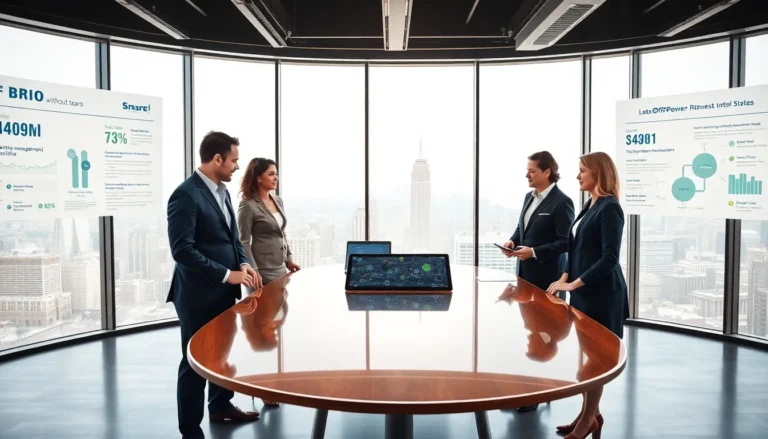In today’s fast-paced real estate market, successful communication can significantly impact the satisfaction of clients and the efficiency of operations. A well-crafted email from a realty manager can make all the difference in maintaining relationships with clients, prospective buyers, and tenants. This article explores the crucial aspects of writing effective emails, particularly focusing on those in the realm of real estate management, with special emphasis on Homerocket Realty, a notable player in the industry.
Table of Contents
ToggleUnderstanding the Role of a Realty Manager

A realty manager serves as a pivotal figure in the real estate sector, responsible for overseeing operations, managing properties, and facilitating transactions. This professional acts as a bridge between property owners and tenants, ensuring that both parties are satisfied. Plus to managing property maintenance and tenant relations, a realty manager is often tasked with marketing properties, collecting rents, and ensuring compliance with local regulations.
By understanding the multifaceted role of a realty manager, one gains insight into the importance of clear communication, particularly through emails, which serve as a primary mode of correspondence. Whether addressing clients, vendors, or team members, effective email communication is vital for achieving operational success and fostering trust.
Importance of Effective Communication in Realty
Effective communication is the cornerstone of success in real estate management. Realty managers must navigate a variety of interactions, each requiring a tailored approach to ensure clarity and professionalism. The ability to convey information accurately not only enhances operational efficiency but also builds lasting relationships with clients.
In real estate, misunderstandings can lead to significant consequences, including financial losses or damaged reputations. So, a realty manager must prioritize clear communication. Emails are the preferred medium for many professionals, making it essential that these messages are concise, informative, and respectful. By fostering effective communication, realty managers can streamline processes and enhance client experiences.
Components of a Professional Realty Manager Email
Writing a professional email as a realty manager involves several key components that ensure clarity and effectiveness. Here are some specific scenarios where these emails may occur:
Common Scenarios for Email Communication
- Client Inquiries: A response to a client inquiry must address their questions directly while providing additional context or information that may assist them further. For instance, if a client asks about property listings, the email should include detailed descriptions of available properties.
- Property Listings: When sending property listings, it is essential to include key details such as price, location, and unique features. A visually appealing format, perhaps with bullet points or color coding, can enhance readability.
- Tenant Management: Emails concerning tenant issues, maintenance requests, or lease agreements should be direct and considerate of the tenant’s needs, showcasing the realty manager’s professionalism and commitment to service.
Best Practices for Writing Realty Emails
To maximize the effectiveness of email communication, realty managers should follow best practices that enhance both clarity and professionalism:
Crafting a Clear Subject Line
The subject line is the first impression a recipient will have of the email. It should be direct and indicative of the email’s content. For example, “Inquiry Response: Your Questions on 123 Main St” immediately informs the recipient of the email’s purpose, encouraging a timely response.
Maintaining Professional Tone and Etiquette
Appropriate tone and etiquette are crucial in realty emails. A professional tone fosters trust and respect, whereas a casual approach may undermine the intended message. Realty managers should avoid slang and overly familiar language, maintaining a respectful distance while remaining personable throughout their communication.
Follow-Up Strategies
Following up after initial email communication is fundamental in real estate management. A strategic follow-up can ensure that inquiries are addressed, and that clients and tenants feel valued. Here are a few strategies:
- Set Reminders: After sending an email, setting a reminder to follow up after a few days can help keep communications on track.
- Be Polite and Concise: A follow-up email should restate any pertinent information while emphasizing the realty manager’s enthusiasm to assist.
- Offer Additional Assistance: A follow-up is also an opportunity to invite further questions or concerns, reinforcing the manager’s commitment to client satisfaction.
Conclusion
Crafting an effective email as a realty manager at Homerocket Realty, or any other real estate firm, requires attention to detail, a strong understanding of the audience, and adherence to best practices in professional communication. By focusing on clarity, maintaining a respectful tone, and strategically following up, realty managers can foster strong relationships with clients and tenants alike. These skills not only enhance efficiency but also contribute to the overall reputation and success of the realty management practice.





